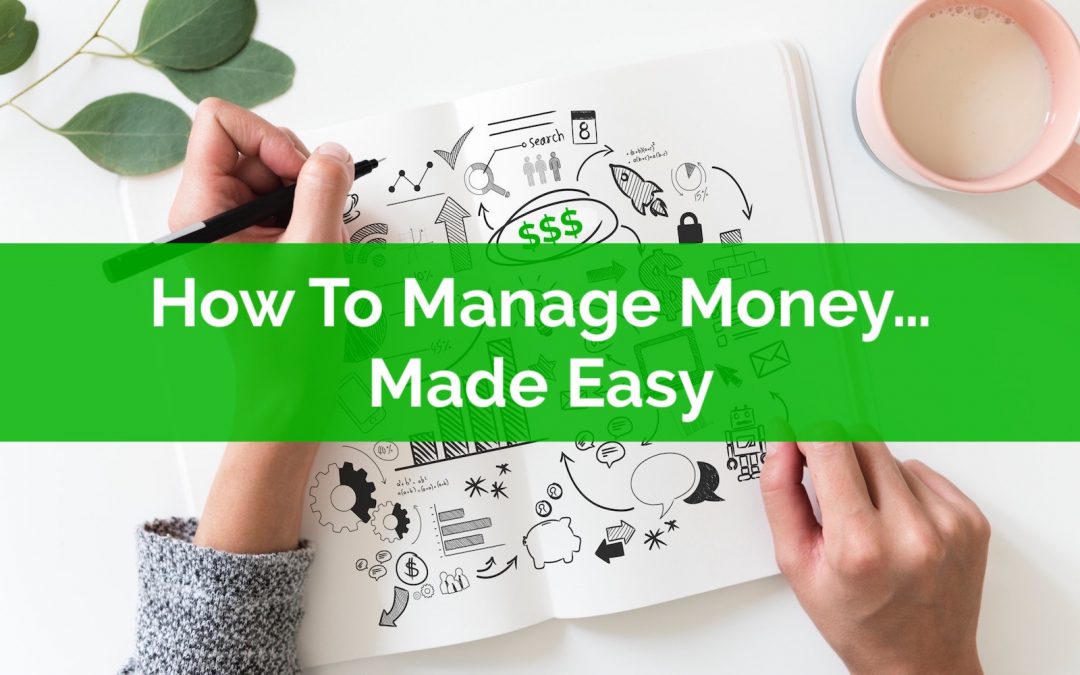
by Owen | Jun 24, 2019 | Behavioral Finance, Budgeting, Emergency Fund, Investment Planning
Managing money is an important life skill. Whether you’re a few years into your first job, or a few years away from retirement, do it well and your financial stress will disappear. Do it poorly and you’ll probably find yourself in a difficult situation more often than not.
The problem is we were never taught how to do this! We were never told how to manage our money. We were never told how to budget, how to pay bills, how to invest, or how to save.
We were never taught about best practices like emergency funds or automated investment plans.
Some of us may have been lucky enough to have a parent or older sibling who was good with money. We were able to learn by watching them manage their money. But because money is so secretive, its often hard to see what they were actually doing on a day-to-day basis.
This post will cover a few of the best practices, the best money management tips, and the best ways to manage your money.
If you’re reading this post my guess is that you’re probably already doing some of these things, or maybe all of them! But you might find something new to add to your financial routine. Something to make it stronger and easier to manage in the future.
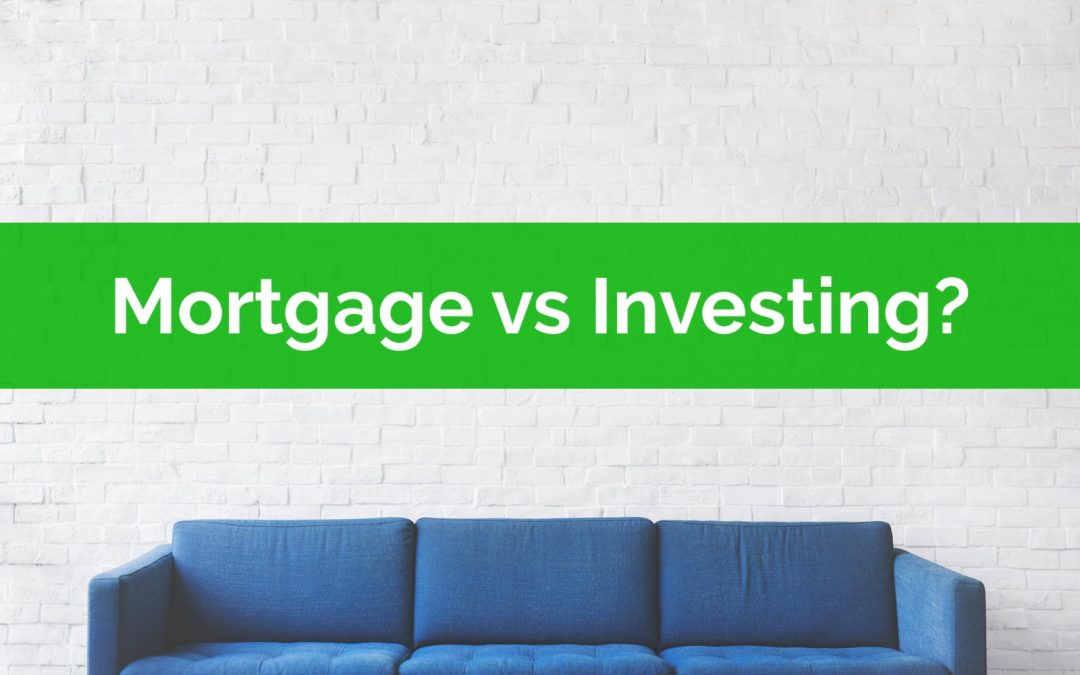
by Owen | Jun 3, 2019 | Behavioral Finance, Buying A Home, Financial Goals, Investment Planning
Paying off the mortgage early can be a fantastic financial goal. In the last post, we looked at the different ways to pay off a mortgage early, how to make a mortgage payoff plan, and talked a little bit about the benefit of paying off the mortgage early.
In this post, we’re going to look at some considerations when deciding to pay off the mortgage early vs investing. This is a common dilemma for many people in Canada. Where should they put extra cash? Against the mortgage? Or in non-registered investments?
Generally, it’s better to invest inside an TFSA or RRSP before choosing to pay off the mortgage early. There is no annual tax impact when investing inside either of these two accounts. Investments can grow tax free. This can make it more attractive to invest inside an tax advantaged account before paying off the mortgage early. But not always…
RRSPs can be counterproductive at certain income levels and in certain situations. Investing inside an RRSP for someone expecting a very low income in retirement might not be the best use of those extra funds. They may experience large GIS claw backs on RRSP withdrawals in retirement. In those cases, it may make sense to pay off the mortgage early before maximizing RRSP contribution room.
As always, when making a financial decision, like paying off the mortgage early vs investing, it’s important to look at the whole financial picture and not just one aspect. If you’re struggling with this decision then it might be helpful to get a custom financial plan from an advice-only planner.
Deciding to pay off the mortgage or invest isn’t just about taxes and investment returns… there are also a bunch of soft benefits to consider. These aren’t pure financial benefits but they can still be “worth” a lot depending on how much you value them. Make sure you consider the financial benefit of paying off the mortgage early but also the soft benefits as well.
To decide between paying off the mortgage or investing we absolutely need to look at the after-tax rates of return. We’re going to assume that we’ve maximized our RRSP and TFSA contribution room already and are deciding between paying off the mortgage or investing in a non-registered investment account.
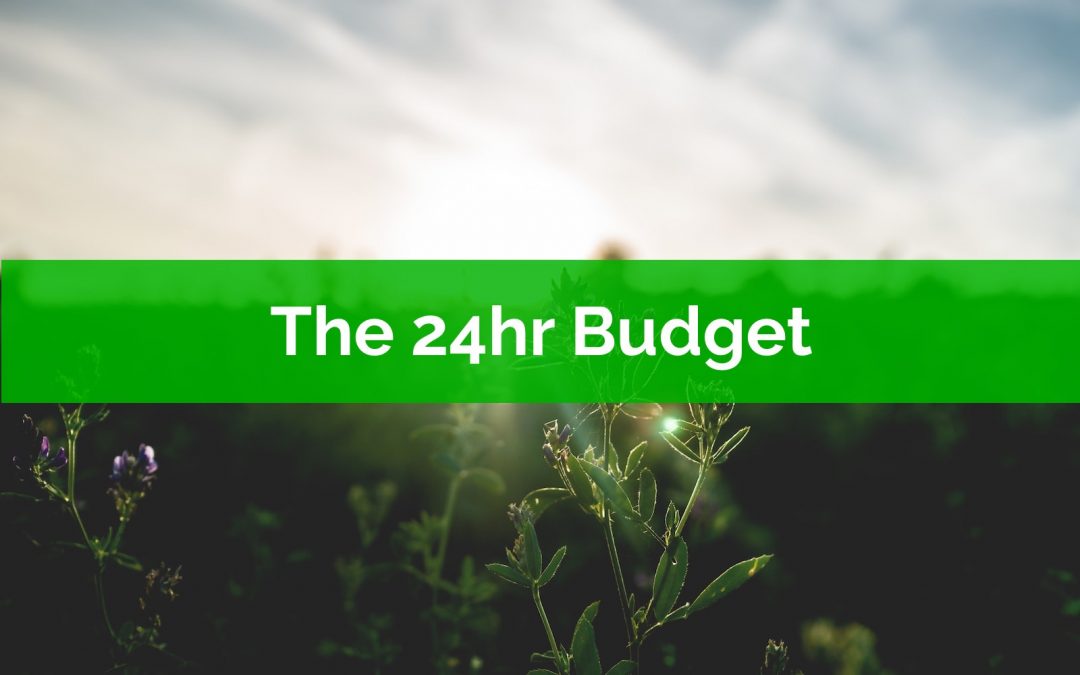
by Owen | Mar 11, 2019 | Behavioral Finance, Budgeting
Doing something for a month is hard, doing something for a week is difficult, but doing something for 24hrs…. well that’s not so bad, it’s achievable, it’s realistic.
When trying to do something difficult, something huge, something never done before, we’re often given the advice that you should “eat an elephant one bite at a time”.
To overcome a big challenge you need to break down your problem into smaller, more manageable pieces.
Budgeting isn’t different…
Sticking to a budget for a month can be hard, super hard. Sticking to a budget for a week is hard, but not impossible. Sticking to a budget for 24hrs…. that’s achievable.
It’s HARD to control your spending day-in-day-out for a month straight but with the daily budget you only have to control your spending for the next 24hrs. After 24hrs your budget resets and you have a new amount to spend for the next day.
That’s the beauty of a 24hr budget. Once the money is gone it doesn’t take a month to come back. With a daily budget you get to spend a new chunk of money tomorrow!
The 24hr budget is like an allowance except instead of $1/week you’re getting $20/$30/$40 per day! This is how you create a 24hr budget…
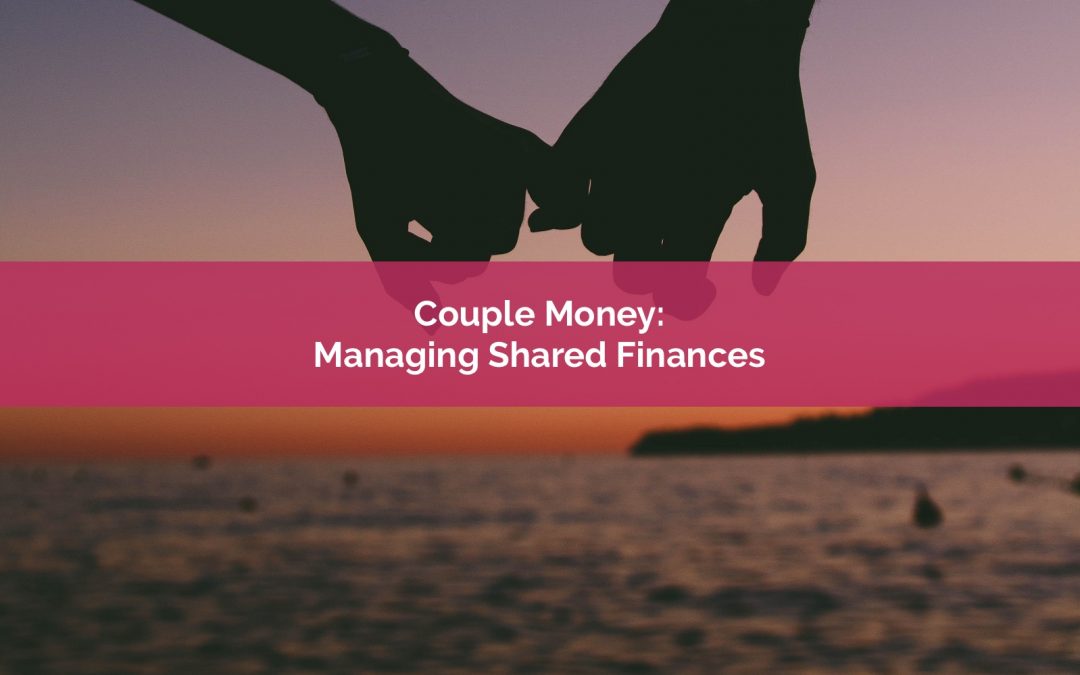
by Owen | Jan 28, 2019 | Behavioral Finance, Budgeting, Financial Goals, Saving Money
Managing finances in a relationship is hard isn’t it? Financial issues are one of the most common factors leading to divorce. Two different people can have very unique views on money and partners in a relationship are no exception.
Everyone values money a little bit differently. We all spend money in different ways. You might prioritize good food while I might prioritize expensive clothes. Couples have different priorities when it comes to money and if those aren’t communicated then its easy for this to cause resentment, anger and frustration between partners.
My wife Sue and I have been managing our money together for 10+ years and I feel we’re pretty successful at it. We still have disagreements, and we each manage our money completely differently, but we have a good system in place to ensure we’re communicating regularly about our finances.
Recently Sue and I were on the Because Money podcast talking about how we manage money as a couple. Sue and I talked to Sandi Martin and John Robertson about a few of the things we do on a regular basis to make money less stressful for us as a couple. You can listen to the whole podcast, but I’ve summarized a few of the main things below.
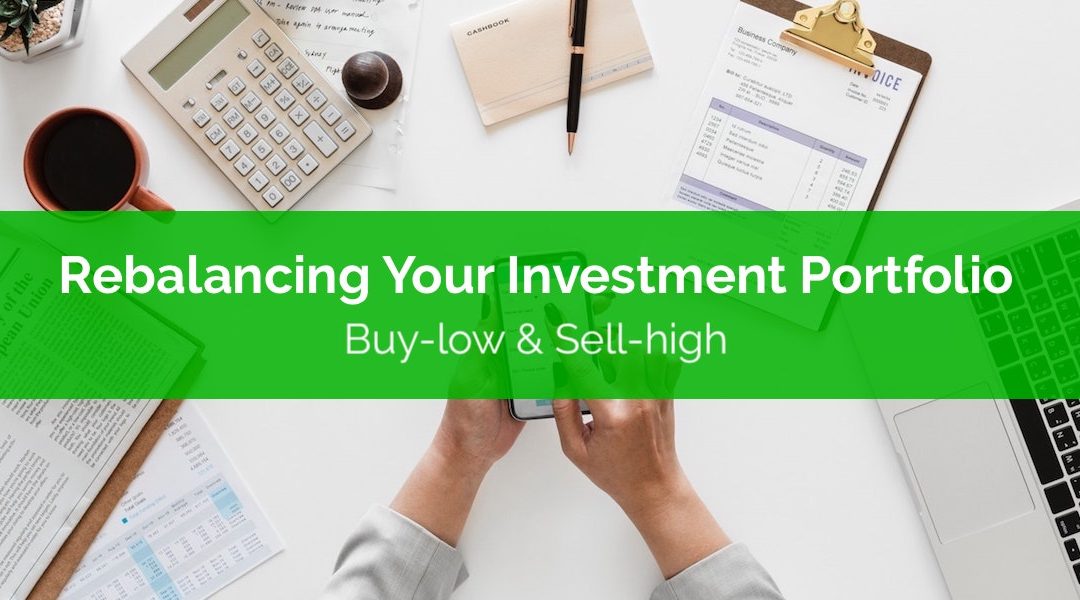
by Owen | Jan 7, 2019 | Behavioral Finance, Investment Planning
Rebalancing is one of those simple things that investors should do at least once per year. Rebalancing your investment portfolio can have a really positive impact on your long-term returns. Not rebalancing your portfolio can lead to some nasty consequences that we definitely want to avoid.
Rebalancing regularly will keep your portfolio’s risk level on target. Rebalancing can also help you avoid a lot of behavioural biases that can impact investor returns. And good rebalancing rules will help you buy-low and sell-high (which is exactly what we want right?!)
For small, medium, or large portfolio’s rebalancing should happen at least once per year. We rebalance three times per year in January, May and September. We do this as part of our tri-annual financial check-in. It’s easy to do and very beneficial. Rebalancing your portfolio can help increase your long-term investment returns and at the same time decrease your risk.
We’ve had two major rebalances in the last 5 years. During the last large decrease in Canadian equities we had to sell bonds to buy Canadian stocks. And more recently, after a big increase in stock market values, we had to sell equities to buy more bonds. Now after the recent changes in the market we will probably need to rebalance our portfolio again.
Rebalancing is something we look forward to, we know that rebalancing is a good thing for the reasons listed below. When we rebalance it means our investment plan is working the way it should and it’s a good indication that we’re on track for our long-term plan.
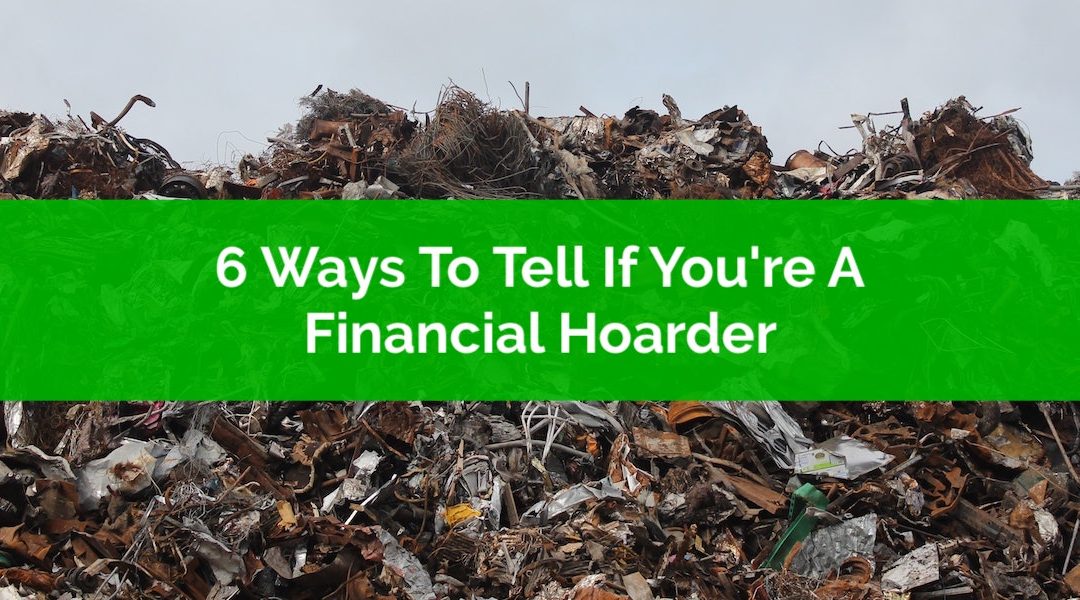
by Owen | Oct 9, 2018 | Behavioral Finance
I have a confession to make, I’m a financial hoarder, or close to it.
What is a financial hoarder? And why does it matter? A financial hoarder is someone who keeps extra bank accounts, investment accounts, budget categories, credit cards etc. The more financial “stuff” you have, the more you likely it is that you’re a financial hoarder.
Understanding this is important because it can affect how you manage your finances.
Just like how physical clutter in your home can affect your ability to move and think, your financial clutter can also have an impact on how you manage your finances. The more financial “stuff” you have the more mental energy you’re going to devote to it. This can lead to financial fatigue where you just give up entirely, and that’s not good.
The simpler your financial life, the easier it is to manage, and the more likely it is that you’ll have success with your finances.
When I do the quiz below I’m close to being a financial hoarder. Let’s do a quick tally…
Page 10 of 12«...89101112»






